 Welcome back to the Women Leading in Law blog series. Today's post features Maneesha Gupta, an IP lawyer and the founder of Mindful Lawyer Canada, Canada's premier mindfulness community for legal professionals. I think at this point in the pandemic we could all use a little more mindfulness in our lives. Read on to learn more about Maneesha's journey and success in law: 1. Tell me a little about your practice or business. I am an Intellectual Property and Technology lawyer practicing in all aspects of IP, advertising, and technology law. I am currently working at TD Bank. I advise on cybersecurity, privacy, data protection, automation and risk management for AI adoption. I started Mindful Lawyer Canada to motivate people to lead inspired lives. The idea was born on Bay Street in 2018. I felt drained, powerless, defeated, and lost. Early on in my career, I also saw that a lot of things were broken in the way lawyers talked about self-care and mental health. I put my hobbies on the backburner and remember how hard it was to attend personal appointments due to limited time and a fluctuating work schedule. I had spent hours looking for an easy-to-access group of lawyers seeking wellness, personal development, and peer-to-peer solutions. Initially, my aim was to create a community meditation space for lawyers. MLC has since expanded beyond that to a suite of corporate wellness programs, weekly mindfulness sessions and events catered to any legal professional. Pursuing mindfulness with peers can be an incredible way to boost our energy, support our physical and mental health, and connect with others. For the law firms, proactive and scalable mindfulness and inclusion helps to retain talent, reduce lawyer burn-out, save money, and improve the health and productivity of employees. I remember within the first week with a post on it, someone contacted me to run a mindfulness event for hundreds of legal professionals. And then the second big tech event was booked, and how inspiring and encouraging that was. The pandemic has taught us that we need connection and community in our lives now more than ever. 2. Why did you go to law school? Unlike most people, I wanted a law degree as a stepping stone to the next chapter in my career. I have a long way to go. I come from a large family of established doctors and engineers, so it took a lot to convince them that this was going to be my path. I paid for everything myself in school and worked multiple jobs to make it all fit. At Osgoode Hall Law School, I loved the faculty, took part in a moot, and enjoyed my favourite course called Beyond Bay Street, which confirmed this was the right decision for me. 3. How did you get to where you are today? Design? Chance? Both? Mostly design. Despite all the science degrees around me, I gravitated towards becoming a lawyer. There was no inflection point – a career in law was my "calling" and I streamlined all my goals with that in mind. I am self-driven and proud to be a first generation lawyer. I also come from a close-knit and exceptionally hard-working family. My parents left India more than 50 years ago and from a young age, they instilled in us the importance of standing on your own two feet, honouring your roots, having integrity, and giving back. My parents and I share a strong bond - they are my closest friends, a huge part of who I am, and how I got to where I am. I am also inspired by other women leading in law. Eva Chan is a trailblazer who leads by example. Eva has taught me so much about being focused, authentic, intentional, purposeful, and supporting others. 4. What is your most significant achievement? What are you proud of? While there are many things I am proud of (running full marathons, being a dragon-boater, dance), nothing will beat the feeling of passing my bar exams and being called to the bar with my colleagues. All my dreams came true that day, and my sacrifices and hard work had paid off. 5. What are some key challenges, and more importantly, opportunities for women in law? We have a white-male driven legal profession with significant gender and racial challenges. Consequently, people of colour, persons of disability, women and other gender identities often repeatedly demonstrate their commitment and competence thereby feeling exhausted and demoralized. Earning a law degree in Canada is a privilege – a legal education gives you the opportunity to rise up, influence decision-making and create space for different races, backgrounds, and genders. Don’t waste your time being a passive bystander in your career. No matter what direction you decide to take, invest in your own growth and make it work for you. 6. What advice would you give a woman starting her legal career? Integrity, reputation, and ethics are paramount to your character and career – start and end with these values in mind. Don’t compare yourself to others. Don’t stay in jobs where you are living an inauthentic life. ------------------------------------------------------------------------------------------------------ Thank you Maneesha for taking the time to participate in this series and I look forward to seeing Mindful Lawyer Canada's continued success! I started this blog series because I was tired of hearing about women leaving law and wanted to hear about women leading in law. The "Women Leading in Law" series focuses on good news stories and highlights amazing women succeeding in the legal profession. Each post includes the profiled lawyer's answers to six questions. Prepare to be inspired! ICYMI - previous posts profiled the following amazing lawyers: Victoria Perrie, Amee Sandhu, Tanya Walker, Alysia Christiaen, Patricia Gamliel, Megan Cornell, Yola Ventrescu, Hilary Book, Margaret Waddell, Nandi Deterville, Jennifer Quaid, Maryann Besharat, Cynthia Mason, Roots Gadhia, Evelyn Ackah, Carrisa Tanzola, Sarah Leamon, Robin Parker, Lorin MacDonald, Karen Yamamoto, Victoria Crewe-Nelson, Lynne Vicars, Kemi Oduwole, Anne-Marie McElroy, Jennifer Gold, Jordana Goldlist, Megan Keenberg, Yadesha Satheaswaran, France Mahon, Sarah Molyneaux, Richa Sandill, Vivene Salmon, Kim Whaley, Alisia Grenville, Frances Wood, Maggie Wente, Anita Szigeti, Neha Chugh, Christy Allen & Nancy Houle, Suzie Seo, Kim Gale, Alexi Wood, Melissa McBain, Erin Best, Gillian Hnatiw, Melanie Sharman Rowand, Meg Chinelo Egbunonu, Lisa Jean Helps, Nathalie Godbout Q.C., Laurie Livingstone, Renatta Austin, Janis Criger, May Cheng, Nicole Chrolavicius, Charlene Theodore, Dyanoosh Youssefi, Shannon Salter, Bindu Cudjoe, Elliot Spears, Jessica Prince, Anu K. Sandhu, Claire Hatcher, Esi Codjoe, Kate Dewhirst, Jennifer Taylor, Rebecca Durcan, Atrisha Lewis, Vandana Sood, Kathryn Manning, Kim Hawkins, Kyla Lee, and Eva Chan.
0 Comments
 I am so happy to start the New Year with another wonderful profile in the Women Leading in Law series. Meet Victoria Perrie a criminal lawyer with Legal Aid Nunavut. The photo is of Victoria straddling the latitudinal line representing the Arctic Circle, at below -50 temperature, in Naujaat, Nunavut, while there for circuit court! 1. Tell me a little about your practice or business. I am a criminal lawyer with Legal Aid Nunavut. I work in Kangiqłiniq, or Rankin Inlet. We are a small office with three criminal lawyers, two family lawyers, and three court workers. Legal Aid Nunavut has a decentralized approach to service delivery, with offices and organizational leaders spread across the territory in Iqaluit, Kangigłiniq, Iqaluktuuttiaq, and Uqsuqtuuk. What is really special about working in Nunavut the opportunity to travel and constantly meet new people. The office I work at is the regional office for the entire Kivalliq region. Lawyers from my office represent clients in each of the seven communities in the Kivalliq. I travel at least once every three weeks for work – and I love it! There are four official languages of Nunavut. I regularly deliver legal services through an interpreter, and appear in court for hearings which will have consecutive interpretation. Cross-examination with interpretation is a skill you will learn, if you’re working in Nunavut! Learning to speak clearly and concisely is a must to ensure you are communicating with your client and interpreter effectively. Working on Inuit territory has given me the chance to explore the land, learn from elders and develop my litigation skills. From watching the northern lights dance in the sky, making long treks across the sea ice in the back of a qamutik, eating whale, seal, and polar bear, learning to prepare and harvest a caribou, to arguing in circuit courts, the Nunavut Court of Justice, and supporting public legal education – Nunavut really has a lot to offer for personal and professional development. 2. Why did you go to law school? I went to law school to learn colonial law and gain skills to be a better advocate. Throughout my pre-law life, I worked in a number of advocate service positions. I have worked for folks with diverse abilities, with many people living with FASD and ARND, those engaged in sex work, and kids in care. I wanted to learn to better use my voice to support the populations I had worked with, and to help others access justice. I thought a law degree would help me understand how to navigate systems and hone my advocacy skills. Becoming a lawyer taught me just that. Law school also taught me humility, courage, respect, and how to deal with the rollercoaster of stress and anxiety that comes with existing in a colonial institution. 3. How did you get to where you are today? Design? Chance? Both? I wouldn’t say I got to where I am today by chance or design, but rather by standing on the shoulders of giants who have come before me. Every ‘career’ decision has been made by following my heart. I have only worked on projects or took employment from places doing work that I believed in. If a firm or organization or project or person leading the work didn’t reflect my personal values or didn’t have a purpose I truly believed in, I wouldn’t engage and moved along. What has got me this far is going with my gut, not giving up, doing things I’m truly passionate about, being brave enough to fail, always trying new things, and sticking to my morals. 4. What is your most significant achievement? What are you proud of? I spent a lot of time thinking about this question and trying to decide what I would call my most significant achievement. The answer I’ve come up with is that it hasn’t happened yet. There are many things in my life that I am proud of: passing the bar, publishing papers, starting a theater school for Indigenous youth, speaking at conferences, working internationally, helping clients navigate colonial systems, my family and friends, but none of these individual experiences of pride can be chalked up as greater than another. For me, once a goal has been accomplished, I move on to the next, constantly changing my focus. Stay tuned for my most significant achievement. I can’t wait to find out what it is. My most recent experience of pride, was developing and teaching a for-credit law school course in Rankin Inlet. Working with several community partners, I was able to launch my Indigenous developed and delivered program as a for-credit high school course. This course discussed colonial law, Inuit law, and the differences and similarities between the two. Students learned from elders, community justice workers, and practicing lawyers. This class intended to culminate into a final moot presentation at the Nunavut Court of Justice to a room of Inuit justice participants. Unfortunately covid arrived in Nunavut in November 2020, putting an end to in-class instruction and school travel plans. I am now working to revamp this program and make it even better for delivery in fall 2021. 5. What are some key challenges, and more importantly, opportunities for women in law? White heteronormative patriarchy in colonial Canada is this huge umbrella of oppressive sludge which we all wade through to do our jobs. The “old boys club” of law still very much exists, even though some women are now allowed to sit at the table. Rules of ‘good character’ are set for members of the bar, making it difficult for some to access a legal career. For me, the most challenging notion is that I actively uphold and enforce the colonizers imposed laws, on land where laws have and continue to exist since time immemorial, by virtue of being a criminal lawyer. I think, within this challenge, lies opportunity. Opportunities to address situations of injustice in the court room, at the office, or on a conference call. The opportunity to be actively anti-racist and attempt to provide a trauma free experience for a client. The opportunity to be part of the change and working towards legal revolution where Indigenous opinions and legal frameworks are considered in all situations, by lawyers and judges, in policing, and by justices at all court levels. Each day is an opportunity to advance the concept that the Indigenous laws which exist on these lands need to be adhered to. 6. What advice would you give a woman starting her legal career? Trust your instincts and know yourself. I know after 3 or more years of law school, you’re probably exhausted. It is important to know what kind of person you are, or want to be. If you are uncomfortable with something, don’t do it. Don’t stay in a job or an internship or an article that kills your spirit: you WILL find something else. Don’t be afraid to speak up. Take up space and make your voice heard in the board room, the court room, and in your communities. Don’t do something because it would ‘look good’ on your resume. Do things that you love. If you haven’t already, think about your boundaries, and what they are. Don’t tolerate clients, colleagues or workplaces that cross those boundaries. Most importantly: listen to Myrna McCallum’s podcast: The Trauma-Informed Lawyer. ----------------------------------------------------------------------------------------- Thank you Victoria for taking the time to participate in this series and we all look forward to hearing about your next great achievement, I am sure it will be amazing! I started this blog series because I was tired of hearing about women leaving law and wanted to hear about women leading in law. The "Women Leading in Law" series focuses on good news stories and highlights amazing women succeeding in the legal profession. Each post includes the profiled lawyer's answers to six questions. Prepare to be inspired! ICYMI - previous posts profiled the following amazing lawyers: Amee Sandhu, Tanya Walker, Alysia Christiaen, Patricia Gamliel, Megan Cornell, Yola Ventrescu, Hilary Book, Margaret Waddell, Nandi Deterville, Jennifer Quaid, Maryann Besharat, Cynthia Mason, Roots Gadhia, Evelyn Ackah, Carrisa Tanzola, Sarah Leamon, Robin Parker, Lorin MacDonald, Karen Yamamoto, Victoria Crewe-Nelson, Lynne Vicars, Kemi Oduwole, Anne-Marie McElroy, Jennifer Gold, Jordana Goldlist, Megan Keenberg, Yadesha Satheaswaran, France Mahon, Sarah Molyneaux, Richa Sandill, Vivene Salmon, Kim Whaley, Alisia Grenville, Frances Wood, Maggie Wente, Anita Szigeti, Neha Chugh, Christy Allen & Nancy Houle, Suzie Seo, Kim Gale, Alexi Wood, Melissa McBain, Erin Best, Gillian Hnatiw, Melanie Sharman Rowand, Meg Chinelo Egbunonu, Lisa Jean Helps, Nathalie Godbout Q.C., Laurie Livingstone, Renatta Austin, Janis Criger, May Cheng, Nicole Chrolavicius, Charlene Theodore, Dyanoosh Youssefi, Shannon Salter, Bindu Cudjoe, Elliot Spears, Jessica Prince, Anu K. Sandhu, Claire Hatcher, Esi Codjoe, Kate Dewhirst, Jennifer Taylor, Rebecca Durcan, Atrisha Lewis, Vandana Sood, Kathryn Manning, Kim Hawkins, Kyla Lee, and Eva Chan. 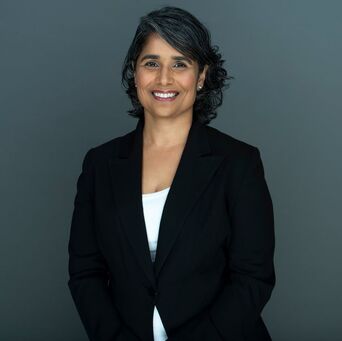 Welcome back to the Women Leading in Law blog series. Today we are privileged to learn from Amee Sandhu founder of the law firm Lex Integra. I first met Amee at a women lawyers event and enjoyed running into her at various events over the next few years. Eventually we joined the same business book club together. Amee has lots of great advice to share and has an interesting journey through law: 1. Tell me a little about your practice or business. I have been a lawyer for almost 21 years. I was called in Ontario in 2000. After a long career in-house, and a few years on Toronto’s Bay Street before that, I started my own practice about 15 months ago. I have also started teaching business law to undergrads, and mentoring with the Law Practice Program at Ryerson University I went through a re-structuring at my last employer and decided that I would start my own practice. My mother, a small business woman, had been asking me since I was called to the bar why I did not have my own law firm. It only took 20 years! I felt that this would give me more control over my schedule and allow me to be more present with my kids. We can have a separate discussion about whether my kids agree that this has worked! My firm is called Lex Integra. I am a solo-preneur. I exclusively practice in the areas of business law and corporate ethics. My clients range from other law firms, tech start-ups/ scale-ups, women-preneur businesses, TSX/ NYSE stock exchange listed companies, crown corporations, and professional firms (eg. accounting, architecture, law). I help my clients mainly in these 4 areas:
2. Why did you go to law school? I went to McGill Law. I went for a few related reasons. In my law school application, I focused on how I wanted to use my skills and degree to help others. My father had succeeded in persuading me (after decades of trying!) by explaining that law was a career where I could change my career direction every few years. He was so right about this! It was actually while I was in graduate school doing my Master of Arts that I realised my original career idea of being an academic was not a good fit for me; I wanted to work with others. From my family point of view, knowing how much my parents sacrificed as immigrants, and how their education plans were thwarted, I wanted to do it for them as well. My dad was on track to being one of the youngest professors of econometrics at his university in India. His move to Canada changed that career path for him. As still happens to many people today, so many decades later, my father’s university credentials were not recognized in Canada. He gained admission to McMaster University to earn his Canadian credentials, but by that point, I was on the way and so he had to find work instead. My mother was the first female in her village in Punjab to go to high school. To do that, she had to leave her village and stay with another family in a bigger, nearby town. This was due to the modernizing vision of my Nana (maternal grandfather) who was the Lambardar of their village and an elected Sarpanch as well. Had my mother’s family not immigrated to Canada, I am sure she would have been gone on to university in India. But instead, my mother and her whole extended family migrated to the UK and then later to Canada. This made it hard for the young generation of her family at that time to continue their education in a traditional sense. You could say I partly pursued my profession because of all of them and what they gave up for our generation. My parents always valued education above all else. As a 10-year-old child, while we were not well-off, I knew I would go to university. I actually thought it was mandatory for all children, considering how my parents always talked to us about it. 3. How did you get to where you are today? Design? Chance? Both? Definitely chance. And by seeing change as an opportunity, as opposed to a threat. I always did a “gut check” to see if I was happy or satisfied in my work. Unfortunately, sometimes it took me too long to recognize if I was not. I have been happiest when I can connect my daily work with a broader purpose. When I followed a career path that was based on my values, interests, mentoring, where I had some control over my working conditions and ability to grow and learn, I was and am happiest. Also, respect for those I work with is key. Once I made peace with the fact that I was not going to follow the “typical” career path, I was much more content. I articled at a prestigious large law firm, now called Borden Ladner Gervais. I did not get hired back (that year only about 50% were hired back); I still have great relationships with many I met during that time. I went on to learn a tremendous amount as a young associate at an excellent mid-sized firm with top-notch lawyers. The next big move I made was to go in-house. As a 3rd year associate, I went from Minden Gross LLP to work in the Canadian nuclear industry at Atomic Energy of Canada Limited. I am almost 50 years old now, but if I need advice, I still call my former AECL or Minden Gross mentors, who are mostly enjoying their well-earned retirements now. Once in-house, I was given two amazing opportunities to grow. Each involved leaving the legal department: First, a secondment to the head of commercial operations at AECL, and then years later to become an integrity officer at SNC-Lavalin in the newly created ethics and compliance department. I could write books about what these two experiences were like in terms of the professional learning and growth. Each move ended up lasting 5-6 years. I jumped at each chance, because I knew that I was going to learn from some of the best and brightest people in the world. If I hesitated, it was because I worried about the impact on my legal career – but I figured I would cross that bridge when I came to it. But in the end, it made me a better lawyer, because the new roles took me into business operations in such a way, that I understood business drivers, challenges, and risks in a new way. 4. What is your most significant achievement? What are you proud of? Starting my own law firm. I am grateful to everyone who has offered their guidance and assistance. My work on the ethics and compliance team at SNC-Lavalin. We created, rolled out, implemented and operationalized a world-class ethics and compliance program world-wide, across several continents, countries and languages. We changed hearts and minds around the world. I am still asked to speak on panels and conferences regularly. I am so proud of that work we did as a team. As an individual, I am also extremely proud. I have received so many personal messages from employees thanking me for my work. In 2011-2012, I was the lead lawyer on one of the largest deals in Ontario. I was the lead lawyer for SNC-Lavalin Nuclear-Aecon joint venture in negotiations with Ontario Power Generation for the refurbishment of the Darlington Nuclear Power Station. As stated in many newspapers at the time, phase 1 was worth $600 million and phase 2 was in the billions. We negotiated the phase 1 and phase 2 agreement at that time. I must add that I was pregnant with my twins for part of this time. And in my life before kids, running a marathon. 5. What are some key challenges, and more importantly, opportunities for women in law? Great question. This is hard for me to judge, because as a woman of South Asian descent, I cannot differentiate how things would have been for me if I was a white woman. I don’t know if I experienced things because I was a woman, or because I was a racial minority, or both. I think one key challenge is that women are both socialised and expected to behave in certain ways. This includes being expected to be polite and “wait your turn” when other people take up space in meetings. Or worse, when you don’t behave according to that script, being told or made to feel that you are difficult to work with. This is even more the case if your cultural background does not conform to the hegemonic culture, and you were raised with other socialization traits. Another aspect of this socialization is for women to take on the emotional burden within families, jobs, among co-workers, etc. This can be a wonderful addition to your life, and to those around you. But it does take time and energy and focus. We are often not aware that we are doing this, or how much precious energy this is taking that we could be spending elsewhere. I have seen it referred to as the third burden that women have, after their job and domestic and care responsibilities. In terms of opportunities, I see tremendous opportunity. With the rise in female business owners, I see an opportunity for female business lawyers to support them. There is also room for lots of disruption in the legal opportunity. When I first left private practice in 2020, I noticed the large percentage of women leaving to go in-house. I understood the question “why can’t we keep women in law firms”? But I also knew that lots of my male lawyer friends were unhappy as well. But they stayed. I always felt bad for my male friends who felt this social pressure to conform in a way that it appeared female lawyer did not. In a way, it seemed that women lawyers gave themselves more permission to leave work environments that were not working for them. That may be different with the younger generations, and I hope so. 6. What advice would you give a woman starting her legal career?
Thank you Amee for taking the time to participate in this series and for sharing your experiences and advice with us! I started this blog series because I was tired of hearing about women leaving law and wanted to hear about women leading in law. The "Women Leading in Law" series focuses on good news stories and highlights amazing women succeeding in the legal profession. Each post includes the profiled lawyer's answers to six questions. Prepare to be inspired! ICYMI - previous posts profiled the following amazing lawyers: Tanya Walker, Alysia Christiaen, Patricia Gamliel, Megan Cornell, Yola Ventrescu, Hilary Book, Margaret Waddell, Nandi Deterville, Jennifer Quaid, Maryann Besharat, Cynthia Mason, Roots Gadhia, Evelyn Ackah, Carrisa Tanzola, Sarah Leamon, Robin Parker, Lorin MacDonald, Karen Yamamoto, Victoria Crewe-Nelson, Lynne Vicars, Kemi Oduwole, Anne-Marie McElroy, Jennifer Gold, Jordana Goldlist, Megan Keenberg, Yadesha Satheaswaran, France Mahon, Sarah Molyneaux, Richa Sandill, Vivene Salmon, Kim Whaley, Alisia Grenville, Frances Wood, Maggie Wente, Anita Szigeti, Neha Chugh, Christy Allen & Nancy Houle, Suzie Seo, Kim Gale, Alexi Wood, Melissa McBain, Erin Best, Gillian Hnatiw, Melanie Sharman Rowand, Meg Chinelo Egbunonu, Lisa Jean Helps, Nathalie Godbout Q.C., Laurie Livingstone, Renatta Austin, Janis Criger, May Cheng, Nicole Chrolavicius, Charlene Theodore, Dyanoosh Youssefi, Shannon Salter, Bindu Cudjoe, Elliot Spears, Jessica Prince, Anu K. Sandhu, Claire Hatcher, Esi Codjoe, Kate Dewhirst, Jennifer Taylor, Rebecca Durcan, Atrisha Lewis, Vandana Sood, Kathryn Manning, Kim Hawkins, Kyla Lee, and Eva Chan. 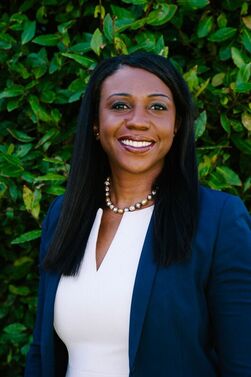 Welcome back to the "Women Leading In Law" blog series, where everyone can read about the personal experiences of some amazing lawyers from across the country and learn great advice on succeeding and leading in law. Today's post features litigator Tanya Walker the founder of Walker Law Professional Corporation: 1. Tell me a little about your practice or business. I am the owner and founder of Walker Law Professional Corporation. I opened the firm initially on Bay Street ten years ago with the aid of a part-time assistant and a $5,000 loan from my father. Walker Law is now located in the nucleus of the financial district. The firm employs eight full time staff members. At Walker Law, tasks are delegated based on complexity, meaning that a junior lawyer, articling student, or paralegal is provided with the opportunity to work on a client’s file while being supervised by a senior lawyer. This strategy reduces clients’ legal fees because the client is billed at the significantly lower rate of a paralegal or junior lawyer and is only charged for the supervision of the senior lawyer. Not only does this strategy benefit clients, but also the junior on the file. When given the opportunity to work on a client file, the junior staff member tends to experience a higher morale because he or she is presented with the opportunity to learn and develop. Walker Law provides litigation assistance focusing on facets of civil litigation including property, employment and contract law. The firm has been retained to represent clients at various stages of the dispute resolution process. We represent small to medium sized businesses as well as Fortune 500 companies. 2. Why did you go to law school? As a child, I wanted to become a lawyer because I watched the Cosby Show and aspired to be like Claire Huxtable, the black mother on the show who worked as a lawyer. My aspiration was reinforced by encouragement from my parents who observed my argumentative spirit and felt that I would be a good fit as a lawyer. 3. How did you get to where you are today? Design? Chance? Both? I owe my success to hard work, my parents, and my mentors. Initially it was my parents who at a very young age instilled in my sister and I “big picture thinking” which meant investing time and energy on things that result in getting you where you need to go. One aspect of that big picture thinking is to believe that any goal that we desire is attainable and to start working towards that goal. Since I knew I wanted to be a lawyer, my parents taught me to be well rounded, to work hard, and to effectively manage my time. Shortly after I was called to the bar, I was accepted to work at a firm on Bay Street. During this time, a law firm was previously hired to assist ours with a complicated litigation matter. I was assigned to be a junior lawyer on the file and developed a relationship with the two partners at the law firm. During my fourth year of practice, the partners offered me the opportunity to open my law firm by renting office space from them. They also agreed to mentor me. After I first opened Walker Law, I started working out at a luxury gym in downtown Toronto in hopes of meeting influential people. It was in my spin class at that gym I met John Campion, one of the leading lawyers in Canada, who encouraged me to run for Bencher and mentored me in running a campaign, to the extent that I saw him as my campaign manager. Overall, having guidance from the right mentors enabled me to be prepared for the right opportunity. 4. What is your most significant achievement? What are you proud of? My most significant achievement is becoming the first female black elected Bencher from Toronto in the 223-year history of the Law Society and being re-elected last year. There are 40 lawyer Benchers that are elected every four years by lawyers and in Toronto you usually require approximately 3,000 votes from lawyers to be elected. Last year there were over 120 lawyer candidates. As a Bencher, I help to create rules and policies that govern and regulate nearly 55,000 lawyers and paralegals in Ontario. I am grateful that my community involvement has been recognized. Last year I received the 2019 Osgoode Hall Law School Alumni Gold Key Award, the Lexpert Rising Stars award in 2018. I also received in 2018 the WeConnect International Women’s Business Enterprise of the Year award. I also appear regularly on national television stations such as CityTV, CBC, and CTV as a legal analyst. 5. What are some key challenges, and more importantly, opportunities for women in law? The key challenge that I see is that people in the profession are not accustomed to seeing lawyers that look like me. In the past I have been mistaken as a junior lawyer in court when accompanied by a male junior lawyer. I have also been mistaken as court staff or as someone who is charged with a crime even though I do not practice criminal law. The opportunity is for lawyers to show that they can be from different races, backgrounds, and genders and should not be dissuaded by others to pursue a law degree. 6. What advice would you give a woman starting her legal career? Learn as much as you can because knowledge is power. Consider investing time in your career. When a lawyer assigned me a task on a file when I first started working at a firm on Bay Street, I would only docket the appropriate time for the task but realistically I would review the entire file twice. Once to learn the file in its entirety and a second time to see if there were any outstanding steps that needed to be completed. When I returned to the lawyer, I would explain that A and B were outstanding issues on the file. That lawyer would then request that I ensure A and B were completed. Over time, you learn to develop your skill and expertise and can use the knowledge you have acquired to assist you with other files. ------------------------------------------------------------------------------------------------------ Thank you Tanya for taking the time to participate in this series and for sharing your experiences and advice with us. I started this blog series because I was tired of hearing about women leaving law and wanted to hear about women leading in law. The "Women Leading in Law" series focuses on good news stories and highlights amazing women succeeding in the legal profession. Each post includes the profiled lawyer's answers to six questions. Prepare to be inspired! ICYMI - previous posts profiled the following amazing lawyers: Alysia Christiaen, Patricia Gamliel, Megan Cornell, Yola Ventrescu, Hilary Book, Margaret Waddell, Nandi Deterville, Jennifer Quaid, Maryann Besharat, Cynthia Mason, Roots Gadhia, Evelyn Ackah, Carrisa Tanzola, Sarah Leamon, Robin Parker, Lorin MacDonald, Karen Yamamoto, Victoria Crewe-Nelson, Lynne Vicars, Kemi Oduwole, Anne-Marie McElroy, Jennifer Gold, Jordana Goldlist, Megan Keenberg, Yadesha Satheaswaran, France Mahon, Sarah Molyneaux, Richa Sandill, Vivene Salmon, Kim Whaley, Alisia Grenville, Frances Wood, Maggie Wente, Anita Szigeti, Neha Chugh, Christy Allen & Nancy Houle, Suzie Seo, Kim Gale, Alexi Wood, Melissa McBain, Erin Best, Gillian Hnatiw, Melanie Sharman Rowand, Meg Chinelo Egbunonu, Lisa Jean Helps, Nathalie Godbout Q.C., Laurie Livingstone, Renatta Austin, Janis Criger, May Cheng, Nicole Chrolavicius, Charlene Theodore, Dyanoosh Youssefi, Shannon Salter, Bindu Cudjoe, Elliot Spears, Jessica Prince, Anu K. Sandhu, Claire Hatcher, Esi Codjoe, Kate Dewhirst, Jennifer Taylor, Rebecca Durcan, Atrisha Lewis, Vandana Sood, Kathryn Manning, Kim Hawkins, Kyla Lee, and Eva Chan. 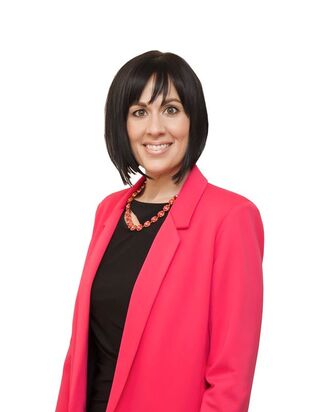 I am pleased to introduce you to our next leading lawyer: Alysia Christiaen. Read on to learn about Alysia's legal career, practice areas, and she has some great advice for working on your business development skills: 1. Tell me a little about your practice or business I am a partner and the Chief Privacy Officer at Lerners LLP, with more than 10 years of experience in advising clients on the issues most critical to them. I practice in the areas of personal injury, privacy and class actions. I have extensive advocacy and appellate experience, including before tribunals, the Superior Court of Justice, and the Divisional Court. I am certified by the International Association of Privacy Professionals as a Certified Information Privacy Professional/Canada. 2. Why did you go to law school? I followed a childhood dream and it fortunately, really worked out for the best! For whatever reason, I fell in love with the show, Matlock, and decided that I wanted to be like Ben Matlock (minus the ukulele – I have no musical talent). 3. How did you get to where you are today? Design? Chance? Both? Grit, determination, confidence, sacrifices and hard work. I am a goal setter; I set one and then I work to achieve it. One of the more difficult things to do is figuring out the next goal now that I’m a partner! I do want to recognize the people I have had in my corner who made it possible for me to get to where I am today. My family and friends provide unwavering support. I have been blessed with amazing mentors – both inside and outside of the practice of law. I do not believe people who say they “made it on their own”. They either have had the most lonely journey, or they have forgotten the help they have received along the way. 4. What is your most significant achievement? What are you proud of? I’m proud of becoming a lawyer. The times we are currently living in are a reminder of the importance of the legal profession. It is our job to ensure that laws are being upheld, freedoms are not being infringed upon, and people’s rights are being protected. On a more personal note, my grandfather was very excited about my becoming a lawyer – it was great to be able to show him my diploma. An equally important achievement was being named a 2019 Lexpert Rising Star. The recognition of my contributions to my firm and to the community, while not necessary, was very rewarding. 5. What are some key challenges, and more importantly, opportunities for women in law? Challenges: Time management – I’ll leave the demands on a woman’s time in the family vs work balance to those who have children. As a woman who has chosen not to have any, it is often assumed that I am easily able to devote extra time to non-billable activities outside of “working” hours (the typical 9-5, which really does not apply to private practice). Learning how to say “no” comes with the challenge of getting over not being seen as a team player. I may not have children to raise in my non-work time, but I do have things to devote my time to that are equally important to me. Opportunities: The ones you make – if there is a project you want to work on, make the right people aware of that. If there is a niche area of law that you want to focus on, communicate that to your practice group leader. Most opportunities are not handed to you, they develop because of the ground work you have laid. You will find that you have more opportunities available if you get over your fear of rejection, and failing. Studies show that men will often apply for jobs or assignments even when they do not have all of the qualifications of an ideal candidate. Women on the other hand, do not. We really need to work on being more confident in our skills and abilities. When we do, more opportunities will present themselves. 6. What advice would you give a woman starting her legal career? If you are headed for private practice, as you progress in your career, your business development skills become just as important as your legal skills. Do not ignore acquiring the skills you need to have a successful independent practice. Take advantage of the business development seminars that are offered, both within and outside of the legal profession. You also need to devote time to creating a business development plan. Building a practice is not something that you can do in your “spare” moments. You should be reviewing and revising your business development plan throughout the year. Evaluate what initiatives are working for you (i.e. gaining referrals) and which are not. Do not waste your resources on initiatives that do not have a return on your time investment. Importantly, be resilient and be patient. You will reach out to people and not get a response – do not take it personally. As anxiety-ridden as it can be, attend networking events and avoid spending all of your time with people you already know. Try to meet one new person – an easily achievable goal. It can be as simple as striking up a conversation with the person in the drink ticket line behind you. Building a law practice is grounded on building relationships; you cannot do that overnight. It involves getting to know a person, and gaining their confidence in you and your ability to effectively represent them, their business or their clients. ---------------------------------------------------- Thank you Alysia for taking the time to participate in this series and for your great advice! I started this blog series because I was tired of hearing about women leaving law and wanted to hear about women leading in law. The "Women Leading in Law" series focuses on good news stories and highlights amazing women succeeding in the legal profession. Each post includes the profiled lawyer's answers to six questions. Prepare to be inspired! ICYMI - previous posts profiled the following amazing lawyers: Patricia Gamliel, Megan Cornell, Yola Ventrescu, Hilary Book, Margaret Waddell, Nandi Deterville, Jennifer Quaid, Maryann Besharat, Cynthia Mason, Roots Gadhia, Evelyn Ackah, Carrisa Tanzola, Sarah Leamon, Robin Parker, Lorin MacDonald, Karen Yamamoto, Victoria Crewe-Nelson, Lynne Vicars, Kemi Oduwole, Anne-Marie McElroy, Jennifer Gold, Jordana Goldlist, Megan Keenberg, Yadesha Satheaswaran, France Mahon, Sarah Molyneaux, Richa Sandill, Vivene Salmon, Kim Whaley, Alisia Grenville, Frances Wood, Maggie Wente, Anita Szigeti, Neha Chugh, Christy Allen & Nancy Houle, Suzie Seo, Kim Gale, Alexi Wood, Melissa McBain, Erin Best, Gillian Hnatiw, Melanie Sharman Rowand, Meg Chinelo Egbunonu, Lisa Jean Helps, Nathalie Godbout Q.C., Laurie Livingstone, Renatta Austin, Janis Criger, May Cheng, Nicole Chrolavicius, Charlene Theodore, Dyanoosh Youssefi, Shannon Salter, Bindu Cudjoe, Elliot Spears, Jessica Prince, Anu K. Sandhu, Claire Hatcher, Esi Codjoe, Kate Dewhirst, Jennifer Taylor, Rebecca Durcan, Atrisha Lewis, Vandana Sood, Kathryn Manning, Kim Hawkins, Kyla Lee, and Eva Chan. 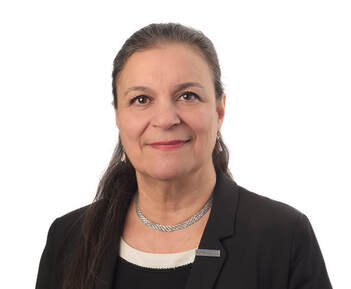 Today we have the pleasure of meeting Patricia Gamliel a lawyer from the Montreal office of Dunton Rainville, Avocats & Notaires. Read on to learn about Patricia's career path and advice for new lawyers: 1. Tell me a little about your practice or business. Administrative law and Access to information law are my passion. Within the administrative law practice, Citizenship and Immigration law is my daily work. While it is an extremely complex practice, it is very much colored by a humanitarian component that keeps one on one’s toes. It also brings litigation and negotiation and requires knowledge and understanding of labour law, commercial law and real estate law. Unlike it, Access to Information law is developing quietly but surely. Our society requires more and more transparency and accountability from government and corporations and more rights toward access to information, especially personal information detained by these bodies are acquired. 2. Why did you go to law school? I always wanted to defend peoples’ rights. As a child, I, sometimes, got into trouble defending another student and it might have had an effect on my choice of a profession. It took time, though, because despite attending law school in France, I travelled and finally decided to set up roots in Canada. Within days, I was offered a teaching job on condition to complete a bachelor in Education at night. Two years later, I had completed said B.Ed., had become, in turns, a union representative, a member of the union executive and a collective agreement negotiator. Following a lock-out and strike, I decided to look again at law schools and one had just opened access to a Bachelor of law degree at night. By then I had two children and was pregnant of the third, still teaching full time but I was very happy! 3. How did you get to where you are today? Design? Chance? Both? Hard work. No, very hard work and constant work to this day. Above all, passion: My passion for Law never lessened. I am always interested in everything that surrounds the application and interpretation of a law. I started off with a small office, a computer, a server and an email address, rushing to pick up the children, cooking and reviewing homework and, then, spending the night working, which included answering emails at midnight sometimes. One must do the best he/she can because this is the obligation of a lawyer. 4. What is your most significant achievement? What are you proud of? I am very proud of the help I have been able to provide to so many people along the way, being clients, colleagues, and others. Referrals mean so much to me but to be invited to weddings and other important events in my clients’ lives always surprises me. As I always say, lawyers work hard, especially women who do not have it, ever, easy, and what keeps many of us going, is, from time to time, to have Justice rendered. That feeling keeps you through the constant stress many lawyers go through. And that, because, often, the rights I acquire for one, extend to others I will never meet but who will enjoy these rights. For example, when I started my career, it was difficult to be a representative in a client’s immigration file. I had the chance to discuss and resolve the issue, first, with the Quebec government in 1996 and, a few years later with Federal government. As a woman, it was particularly important to me to fight for a change of view on women standing in their own culture. Our tribunals acquire expertise on various religions and foreign cultures in immigration but, sometimes, do not see the societal shifts that take place. A typical example is the stance that divorced women from India and its region cannot truly get remarried. While it was true for the longest of time, it is not so anymore and I am happy, some women were able to come to Canada or bring in their husband. With regard to access to information, few people know that, until a few years ago, in the province of Quebec, a narrow interpretation of the applicable law made it quite impossible to access the social services and medical files of an intellectually challenged person. I successfully challenged the interpretation on the basis that our society, now, expect accountability and transparency from the departments involved. Today, the family, the curator and legal caregiver of a challenged person can access these files. As a community person, I continue to make myself available to help non-profit organizations by sitting on their boards of direction. I am, also, very involved with the Canadian Bar Association, the largest association for jurists in Canada which accomplishes, every year, so much for the Rule of Law and extension of rights. 5. What are some key challenges, and more importantly, opportunities for women in law? Women in law face numerous challenges and the first one is to live among what is still a man’s world. We are being told that a growing percentage of women attend law schools but not how many complete their degree or how many and how long does it take them to become partners in private practice unless they develop their own firm. I recognize the challenge is organizational for the ones who decide to take their full place as a woman, a mother and a lawyer in our society but women are resilient in nature. As for opportunities, it requires determination to reach them but also a change of culture. As progressive law firms and corporations realize, more and more, that the angle taken by women in law as well as in business differs, positively, from men’s, not only will women be offered more opportunities but these law firms and corporation will gain so much more in every area of their businesses as proven again an again by statistics. 6. What advice would you give a woman starting her legal career? Join a network, join an association such as the Canadian Bar Association for example, join a group! Jump into the ocean of law and do not ever think that someone better than you should get the position: You are it! ---------------------------------------------------------- I love that last line. How many times have we talked ourselves out of applying or putting our hand up because we think someone else is better or we are not "good enough". Let's stop that thinking! I started this blog series because I was tired of hearing about women leaving law and wanted to hear about women leading in law. The "Women Leading in Law" series focuses on good news stories and highlights amazing women succeeding in the legal profession. Each post includes the profiled lawyer's answers to six questions. Prepare to be inspired! ICYMI - previous posts profiled the following amazing lawyers: Megan Cornell, Yola Ventrescu, Hilary Book, Margaret Waddell, Nandi Deterville, Jennifer Quaid, Maryann Besharat, Cynthia Mason, Roots Gadhia, Evelyn Ackah, Carrisa Tanzola, Sarah Leamon, Robin Parker, Lorin MacDonald, Karen Yamamoto, Victoria Crewe-Nelson, Lynne Vicars, Kemi Oduwole, Anne-Marie McElroy, Jennifer Gold, Jordana Goldlist, Megan Keenberg, Yadesha Satheaswaran, France Mahon, Sarah Molyneaux, Richa Sandill, Vivene Salmon, Kim Whaley, Alisia Grenville, Frances Wood, Maggie Wente, Anita Szigeti, Neha Chugh, Christy Allen & Nancy Houle, Suzie Seo, Kim Gale, Alexi Wood, Melissa McBain, Erin Best, Gillian Hnatiw, Melanie Sharman Rowand, Meg Chinelo Egbunonu, Lisa Jean Helps, Nathalie Godbout Q.C., Laurie Livingstone, Renatta Austin, Janis Criger, May Cheng, Nicole Chrolavicius, Charlene Theodore, Dyanoosh Youssefi, Shannon Salter, Bindu Cudjoe, Elliot Spears, Jessica Prince, Anu K. Sandhu, Claire Hatcher, Esi Codjoe, Kate Dewhirst, Jennifer Taylor, Rebecca Durcan, Atrisha Lewis, Vandana Sood, Kathryn Manning, Kim Hawkins, Kyla Lee, and Eva Chan. 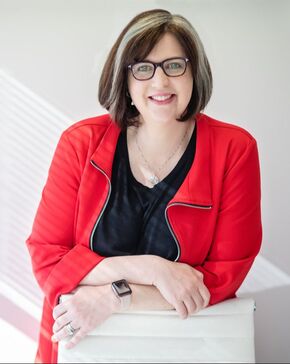 If you are a lawyer with an entrepreneurial spirit and an interest in technology, this next profile is for you. We have the pleasure of learning from lawpreneur and legal innovator Megan Cornell, founder, CEO, and lawyer at Momentum Business Law: 1. Tell me a little about your practice or business. I run Momentum Business Law, an entrepreneur focussed practice headquartered in Ottawa, but serving businesses across Ontario. We are just turning 5 years old this summer and have been focused for all of those 5 years on figuring out how to deliver better legal services to entrepreneurs. We rely heavily on technology to be more efficient for both ourselves and our clients, allowing us to focus a lot on the client relationship. We’re launching an online DIY option for small business this summer called Gain Momentum. 2. Why did you go to law school? I knew since I was 10 and my Grandmother bought me a book called The Scales of Justice that I wanted to be a lawyer. However, most of my life I thought I would go into criminal defence work, particularly working to free the wrongly convicted. Then the summer before law school I worked with a great estates lawyer and realized that even estate law was really interesting to me – so when I finally entered law school I only ever took the one, required, criminal law class. 3. How did you get to where you are today? Design? Chance? Both? Probably like most people, a bit of both! I went out on my own after 10+ years of practice at a mid-sized firm in Ottawa because I knew I wanted to do things “differently”, but I really didn’t know what that meant. I began by working out of my home office and with no clerk, because with no overhead I knew I would be completely flexible. That meant, however, that I had to learn to do absolutely everything for myself – coming from a firm with 60+ lawyers and double that in staff, that was challenging. However, that gave me the foundation to eventually grow the firm and I’ve always expected our team members to know how to do a very wide range of both client work and firm operations. The piece which was more by design was our firm’s focus on using technology and the design thinking employed by technology companies. My partner is in tech and most of our social circle is in tech – this has always help me understand our technology clients well, but it has also directed every thought I’ve had as I’ve designed and built the firm. Principles of lean and agile development, the perspective which product managers bring to customer work, just simply focusing on the firm as a client-centered instead of lawyer-centered organization. This approach has led us to be leaders in both process and technology innovation. I’m so incredibly proud of what our small little firm accomplishes – all because we have embraced a different way of thinking about law and how legal support is delivered to clients. 4. What is your most significant achievement? What are you proud of? I can’t believe that Momentum is 5 years old. There have been some really hard times – mostly when team members left to go on to different opportunities. I wanted to give up so many times. I can say now that it is a horrible idea to start a firm and grow it on your own – I should have had at least one more of “me”, but I’m incredibly proud of how I’ve managed to build a firm which accomplishes what it does. This has absolutely been done with the help of amazing Momentum team members along the way, but I never want to underestimate the burden that comes with the ultimate responsibility for the success of your clients and the livelihood of your team. 5. What are some key challenges, and more importantly, opportunities for women in law? This is such a tough question, because I think that so much of it is the mindset which we bring to our careers. If we accept that we want certain experiences and we commit to making those experiences happen and balancing any competing interests, then all challenges are opportunities. I think that women can get in their own way and overthink things – we have one shot at this so we should seek to enjoy what life presents us with as much as possible. There are SO many routes which our careers can take – they can even take us out of law completely, we just need the courage to find those paths. 6. What advice would you give a woman starting her legal career? Look out for number one (and in case there is any doubt, that’s you!). What I mean by that is, always consider your own best interest as you move through your career. It took me a while to figure this one out: I think that as women we are often oriented towards being people pleasers and trying to support others. Sometimes that is the right thing to do, but not to the detriment of our own careers. Also, you don’t and probably shouldn’t, try to plan out your entire career at the start. Be prepared for change and new opportunities, or for completely changing your mind about what you want to do. Our career is supposed to be challenging and fun (at least some days!), not just something we survive. One of the big secrets about finally finishing school and starting on your career is that it really isn’t as sexy or exciting as you thought it would be. Particularly if you haven’t been in a previous career, it is a bit of a wake up call that the responsibility and day to day routine of a career job can be hard. That doesn’t mean it is time to leave necessarily, but figure out what you do like about your career, and focus on making that the biggest part of what you do – you aren’t doing something wrong if you finally start practice and it isn’t nearly as amazing as you thought it would be! ---------------------------------------------------------------------------- Yes, look out for number one! I like that. Also, I agree, planning out your entire career is futile. Life throws you curve-balls and you might miss opportunities if you are focused on your "plan". Thanks for participating in this series Megan, and congrats on Momentum's 5 Year Anniversary! I started this blog series because I was tired of hearing about women leaving law and wanted to hear about women leading in law. The "Women Leading in Law" series focuses on good news stories and highlights amazing women succeeding in the legal profession. Each post includes the profiled lawyer's answers to six questions. Prepare to be inspired! ICYMI - previous posts profiled the following amazing lawyers: Yola Ventrescu, Hilary Book, Margaret Waddell, Nandi Deterville, Jennifer Quaid, Maryann Besharat, Cynthia Mason, Roots Gadhia, Evelyn Ackah, Carrisa Tanzola, Sarah Leamon, Robin Parker, Lorin MacDonald, Karen Yamamoto, Victoria Crewe-Nelson, Lynne Vicars, Kemi Oduwole, Anne-Marie McElroy, Jennifer Gold, Jordana Goldlist, Megan Keenberg, Yadesha Satheaswaran, France Mahon, Sarah Molyneaux, Richa Sandill, Vivene Salmon, Kim Whaley, Alisia Grenville, Frances Wood, Maggie Wente, Anita Szigeti, Neha Chugh, Christy Allen & Nancy Houle, Suzie Seo, Kim Gale, Alexi Wood, Melissa McBain, Erin Best, Gillian Hnatiw, Melanie Sharman Rowand, Meg Chinelo Egbunonu, Lisa Jean Helps, Nathalie Godbout Q.C., Laurie Livingstone, Renatta Austin, Janis Criger, May Cheng, Nicole Chrolavicius, Charlene Theodore, Dyanoosh Youssefi, Shannon Salter, Bindu Cudjoe, Elliot Spears, Jessica Prince, Anu K. Sandhu, Claire Hatcher, Esi Codjoe, Kate Dewhirst, Jennifer Taylor, Rebecca Durcan, Atrisha Lewis, Vandana Sood, Kathryn Manning, Kim Hawkins, Kyla Lee, and Eva Chan. 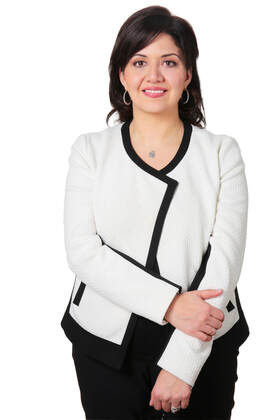 I hope you had a lovely long weekend. Ready for some more great career advice from a leading lawyer? Read on to read about Yola Ventresca's legal journey and some her helpful advice: 1. Tell me a little about your practice or business. I have a diversified, eclectic practice. In general terms, I would define it as a broad based administrative/litigation practice. I have had the good fortune of being able to shape a practice that reflects my passions – something that I value tremendously. My ability to do so was fostered and encouraged by my principals (and mentors): Peter Kryworuk, Shauna Powell and Kevin Ross. I was also lucky to have worked closely with Earl Cherniak in my early years. Earl told me: “do what you love, the files will follow.” That was – and is – invaluable advice that guides me constantly in everything I do. About half of my practice is devoted to health law. It was health law that brought me to Lerners in the first place. This includes primarily the representation of regulated health professionals confronting various issues including litigation, proceedings before their respective regulators (i.e. College of Physicians and Surgeons of Ontario, Royal College of Dental Surgeons of Ontario), privacy concerns, human rights proceedings and issues arising from hospital practice. I am part of a specialized team at Lerners that deals with issues related to medical assistance in dying, and, more recently, issues flowing from the COVID-19 pandemic. The balance of my practice involves various types of administrative and tribunal work. I have a robust practice focussed on post-secondary institutions. To this end, I provide advice to universities on a myriad of issues ranging from sexual violence to research ethics. I also have a significant labour practice focussed on post-secondary institutions. In addition, I am a certified workplace investigator, and, in this role, offer independent fact-finding services for various sectors. The rest of my practice consists of employment law, human rights law and appellate work. 2. Why did you go to law school? I should start by saying that it was not entirely a given that I would go to law school. After graduating from Huron University College at Western with an Honours BA, I was accepted into a graduate program in History and was seriously contemplating that route. However, the precarious nature of academic work ultimately led me to decide to go to law school (the dream of my five year old self, even though I had no lawyers in the family). So, I accepted an offer from the Faculty of Law at Western University. There, I had the incredible fortune of being mentored by some outstanding professors. The three that come to mind most vividly are Dr. Melanie Randall, Dr. Rande Kostal and Professor Robert Solomon. Professor Solomon’s course in Health Law was life-changing. I didn’t know what health law was before I started law school. Professor Solomon’s enthusiasm for the subject and his ability to push his students to reach beyond their grasp really inspired me. After finishing first in his health law class he suggested to me that I try to secure an articling position at Lerners. I remember vividly a conversation in his office on a Sunday afternoon in 2004 when he told me that in terms of health law, Lerners would always provide me with an intellectually challenging flow of health law files – and he was right. With letters of support from my mentors, I landed one of three available articling positions at Lerners that year. While one might think the rest was history, my love for academic work quietly followed me through my articling year at Lerners. So much so that at the end of the year, after much soul searching, I decided to apply for the full time LL.M. program at the University of Toronto. My husband was to be on sabbatical that year, and I could not pass up the opportunity to be a full-time student one last time. With funding offers from the Social Sciences and Humanities Research Council of Canada and the Canadian Institutes of Health Research, I advised Lerners I was withdrawing my name from consideration for hire back. We sold our home and packed our bags for Toronto. My year at the University of Toronto was intellectually stimulating and exciting. I entered the specialized Health Law and Policy LL.M. program. There, I again encountered inspiring mentors and health law “giants” including Dr. Rebecca Cook, Dr. Colleen Flood and Professor Joanna Erdman. I pinched myself almost everyday at my good fortune to be at the epi-centre of health law research. I was honoured to have my thesis supervised by Dr. Bernard Dickens, arguably Canada’s leading expert on medical law. As I neared the completion of my LL.M., I was encouraged by several of my mentors to pursue doctoral studies. After considerable soul searching and many long conversations, I decided that I wanted to practice law, and health law in particular. I was offered a job at Lerners in London after I completed my LL.M. It’s been my home for the past thirteen years. I will say that I have never lost my interest in, and commitment to, scholarly research and teaching. I’ve been lucky to be a part of a firm that supports my passion. I’ve published many articles in peer-reviewed journals and have taught at Western’s Faculty of Law. I feel that my scholarly work informs, sustains, and enriches my practice. 3. How did you get to where you are today? Design? Chance? Both? The short answer is that I worked hard. Really hard. And, as the old adage goes, luck is what happens when hard work meets opportunity. And that’s precisely what happened to me, with the assistance of some tremendous mentors and sponsors. I was raised with a very strong work ethic. I come from a big, Lebanese family. My father left Lebanon in the 1970s with eighty dollars in his pocket. My mother, who left Lebanon when she was six, was raised by her mother in precarious socio-economic conditions. My parents eventually became teachers (my mother would later become a school principal). I think understanding (and seeing) the tremendous sacrifices they made for their children propelled me forward. Getting an education, gaining a profession – these were a given growing up. I worked as a waitress and bartender during my undergraduate and law school studies, sometimes working up to thirty hours a week. This forced me to be organized and disciplined with my time. Working in the service industry imparted in me all kinds of skills which, at the time, I had no idea would assist in a legal career. Things like really listening to someone, picking up on non-verbal cues, diffusing tense situations, working late nights. I carried those lessons, and the lessons of my childhood, into the practice of law. 4. What is your most significant achievement? What are you proud of? While I have been honoured to receive a number of external distinctions (Lexpert Rising Star, rankings in Best Lawyers in Canada and the Lexpert Legal Directory), my most significant professional achievement was being a named an equity partner in December 2015; eleven months after I returned from parental leave following the birth of my daughter in August 2014. The journey to parenthood was a difficult one for me. My daughter arrived in my sixth full year of practice. By that time, I was a non-equity partner. Having been focussed on myself and my career for so long, I was petrified that I would find my parental leave difficult, that I would miss my files and my work. But I didn’t. In fact, I loved my leave (I say this knowing it is not so for many women and many, many, struggle tremendously). I loved it so much that when my six month leave was almost up, I started to have doubts about going back (or going back so soon). I remember taking my daughter to a lunch at the mall with our former managing partner and one of the great mentors of my life and career, Janet Stewart, Q.C. Eating my salad while rocking my almost six-month old daughter in her stroller, I told Janet that I didn’t know that I was ready; that I was losing sleep about going back to work so soon and that I would really like to just stay in my stretchy clothes for another six months. Looking me straight in the eye Janet said: “Yola, just give it a try; come back. If you come back and you need more time, we’ll give it to you, no questions asked.” If all of this had been playing out on film, a lighting bolt would have hit the protagonist at this point (me). With those few words of reassurance, and the knowledge that I could change my mind, I went back to work in February of 2015. Much to my surprise, having a child transformed the way I practiced. I worked smarter, more efficiently, learned to prioritize my time and got good at saying no. As each day passed, I felt more comfortable; I knew that I could be a good parent and a good lawyer. And that gave me confidence. Confidence for what my husband would jokingly refer to as the last 100 metre sprint to the finish line. I realized that equity partnership would do so much, not only for me, but for my family. So, I pushed through that last and hardest sprint. Being voted into the partnership the same year I returned to practice is something that will always bring me pride. I am most proud of myself for having found that extra gear; for just putting one foot in front of the other to achieve a long-cherished professional and personal goal. For not stopping. 5. What are some key challenges, and more importantly, opportunities for women in law? There is no doubt in my mind that private practice, to a significant extent, remains based on anachronistic views of family life from fifty or more years ago. It is premised on there being two partners in the home – one bound and one “un-bound”. In this paradigm, the “un-bound” partner, almost always the man (in heterosexual relationships), has limitless flexibility. He is able to take a 7am breakfast meeting because someone else is getting the kids ready for school; he does not hesitate to stay late at the office because someone else is tasked with the responsibility of school pick-up and homework oversight. He’s able to leave town on the drop of a dime, because the “domestic arena” is covered. Frankly, in my own life, I have the great benefit of having a partner who supports me (and has always supported me) in real and tangible ways. How? By taking on the lion’s share of the day-to-day work required to raise our daughter (while at the same time being an accomplished scholar, author, and educator). This was game changing for me. The empirical evidence regarding the attrition of women from private practice all points to one fact. It is not the having of children or the taking of parental leaves that makes many women feel that private practice and motherhood are not compatible. It is the early years of child-rearing and private practice that makes many (who want to stay in private practice) feel they have no choice but to leave. Now that I am in a position to assist others, most meaningfully as a mentor to junior lawyers, I am mindful of these hidden barriers in the domestic sphere. I offer as much flexibility as possible in terms of meeting times and calls. I try to mirror positive self-care behaviour, such as taking time for myself, putting boundaries around my personal engagements and saying no to office housework. I spend lots of time talking to my mentees about “making it all work” and that how “making it all work” sometimes means just getting through. I talk about when I’ve failed as much as I talk about when I’ve succeeded. I encourage them to think about the long game; the way that things change as one moves through the ranks of a law firm. I recognize that there are a myriad of other issues women face in law: pay inequity, sexual harassment and unrecognized/unpaid work. I had the opportunity to write a recurring column this past year for Advocacy Matters that addressed many of these issues. Part of my process was eliciting input for the various columns from female lawyers. My DMs were consistently flooded with stories from women talking about their experiences with sexual harassment, inappropriate prying into their personal lives, and being passed over for important files. We may like to think that the profession has dealt with these issues. We have not. Yes, there has been progress, but there remains a tremendous amount of work to do to address the systemic barriers that contribute to the under representation of women in the ranks of equity partnership and firm management. All that said, there is still so much good that should inspire us all. At Lerners in London, I would need well more than two hands to count the number of women at the equity partner rank who have families and thriving legal practices. There is a real culture of reaching behind you to pull up the next woman in line. Having been the beneficiary of this culture, I am doing my part now to reach out my hand. This means providing meaningful sponsorship, introduction to clients, work on high quality files, and pragmatic advice. 6. What advice would you give a woman starting her legal career? First and foremost, be honest with yourself. Do you enjoy the type of law you are practicing? If not, make the switch early. Find a firm with a culture of not only mentorship, but sponsorship. Try things before you think you are ready. Put your hand up for opportunities. Ask for opportunities. Be a trusted colleague. Always be professional with opposing counsel. Protect your reputation. Find a friend at work. Not just a colleague, a true friend. Someone who will support you, let you vent and have your back. And be that person for someone else. Take pride in your work. Think of yourself as an apprentice and soak up as much as you can. The early years go by in a blink. And, finally, but most importantly, remember that ours is a profession imbued with privilege and power. Stand up for people who are marginalized. Try your best to listen and understand. Lend your voice to the cause of equity and speak up when you see an injustice. Try to do your small part to move the profession toward a model where all feel included and respected. --------------------------------------------------------------------------- Wow! So much awesome advice in this one post. Thank you Yola for taking the time to provide such thoughtful, personal and valuable answers to these questions. I started this blog series because I was tired of hearing about women leaving law and wanted to hear about women leading in law. The "Women Leading in Law" series focuses on good news stories and highlights amazing women succeeding in the legal profession. Each post includes the profiled lawyer's answers to six questions. Prepare to be inspired! ICYMI - previous posts profiled the following amazing lawyers: Hilary Book, Margaret Waddell, Nandi Deterville, Jennifer Quaid, Maryann Besharat, Cynthia Mason, Roots Gadhia, Evelyn Ackah, Carrisa Tanzola, Sarah Leamon, Robin Parker, Lorin MacDonald, Karen Yamamoto, Victoria Crewe-Nelson, Lynne Vicars, Kemi Oduwole, Anne-Marie McElroy, Jennifer Gold, Jordana Goldlist, Megan Keenberg, Yadesha Satheaswaran, France Mahon, Sarah Molyneaux, Richa Sandill, Vivene Salmon, Kim Whaley, Alisia Grenville, Frances Wood, Maggie Wente, Anita Szigeti, Neha Chugh, Christy Allen & Nancy Houle, Suzie Seo, Kim Gale, Alexi Wood, Melissa McBain, Erin Best, Gillian Hnatiw, Melanie Sharman Rowand, Meg Chinelo Egbunonu, Lisa Jean Helps, Nathalie Godbout Q.C., Laurie Livingstone, Renatta Austin, Janis Criger, May Cheng, Nicole Chrolavicius, Charlene Theodore, Dyanoosh Youssefi, Shannon Salter, Bindu Cudjoe, Elliot Spears, Jessica Prince, Anu K. Sandhu, Claire Hatcher, Esi Codjoe, Kate Dewhirst, Jennifer Taylor, Rebecca Durcan, Atrisha Lewis, Vandana Sood, Kathryn Manning, Kim Hawkins, Kyla Lee, and Eva Chan. 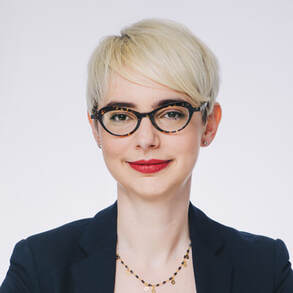 This week in the Women Leading in Law blog series, we learn about the career and law practice of Hilary Book. Read on for some great tips for lawyers: 1. Tell me a little about your practice or business. I founded my own commercial litigation firm, Book Law, about 1.5 years ago after a dozen years practicing at other firms on Bay Street. We do everything from breach of contract cases to professional negligence to real estate disputes, with a lot of experience in oppression and fraud cases. Our focus is on providing smart, practical advice and representation. This means helping clients make decisions that are in their best long-term strategic interests, and finding creative solutions rather than just marching rigidly through each step of the litigation process. One of the things I love most about my practice is its diversity, both in terms of the cases we handle and the people we represent. We act for a wide range of clients, from publicly traded companies to family-owned businesses to individual entrepreneurs, in all sorts of different industries. We also act for clients from many different cultural communities, with many different life stories. The diversity of my practice requires constant learning on my part, which is a joy. 2. Why did you go to law school? In some ways, it was a default. I always loved going to school, but I didn’t want to go into grad school or academia – I do much better with structure and frequent deadlines! I enjoyed some of the work I’d done in undergrad in legal philosophy and restorative justice, and thought law school would be a good way to continue to explore Big Questions. I went to law school planning on becoming a “constitutional lawyer”, without any real idea of what that meant. Then I got to law school and found that constitutional law was my least favourite course, and that I really enjoyed my private law courses. 3. How did you get to where you are today? Design? Chance? Both? A bit of both. I knew I wanted to be a courtroom litigator, and I actively sought out the experiences and work that I thought would get me there. At the same time, no one succeeds without a little of bit of luck to be in the right time at the right place. As for opening my own firm, that’s not something I ever planned to do or thought I could do, but as it turns out, I was wrong. It just goes to show that, even if you do have detailed career plans, you need to stay open to new ideas and adapt accordingly. 4. What is your most significant achievement? What are you proud of? Book Law. I started the firm with a lot of confidence in my legal abilities, but I was a bit more concerned about my ability to generate work. I’m really proud that I’ve created a financially successful firm while doing the work I like doing, and practicing in a way that accords with my values. 5. What are some key challenges, and more importantly, opportunities for women in law? In commercial litigation, it can still be really challenging for women to be taken seriously as advocates and, especially, as lead counsel. This is very problematic when it comes to landing new work. From time to time I’m told outright that a client doesn’t want to retain me because I’m a woman (which at least has the virtue of confirming that it isn’t all in my head), but more often I hear variations on “you seem really nice, but are you tough enough to handle my case?” (They always come around once they see me in court, but if I don’t get hired in the first place, they don’t get the chance.) I believe that women have the opportunity to be leaders for change in law. The challenges that many of us still face give us perspective on the systems, attitudes and practices that serve to exclude so many. While we still have a long way to go, there is a lot of openness now to hearing our perspectives and voices. 6. What advice would you give a woman starting her legal career? Don’t be afraid to be ambitious. Don’t be afraid to ask for what you want. Be a smart and strategic advocate for yourself, just as you are for your clients. Be true to yourself – your values, your interests, your goals. Take care of yourself, physically and mentally – it is not in the best interests of you, your clients or your firm for you to burn out. We all need support, so nurture your network. Stay in touch with classmates, join professional organizations and be an active volunteer. Seek out mentors and sponsors, and be a generous mentor yourself. These relationships are critical to sustaining you through a long and happy career that will inevitably have ups and downs. --------------------------------------------------------------------------------------------------------- Thanks Hilary for taking the time to participate in this series. I started this blog series because I was tired of hearing about women leaving law and wanted to hear about women leading in law. The "Women Leading in Law" series focuses on good news stories and highlights amazing women succeeding in the legal profession. Each post includes the profiled lawyer's answers to six questions. Prepare to be inspired! ICYMI - previous posts profiled the following amazing lawyers: Margaret Waddell, Nandi Deterville, Jennifer Quaid, Maryann Besharat, Cynthia Mason, Roots Gadhia, Evelyn Ackah, Carrisa Tanzola, Sarah Leamon, Robin Parker, Lorin MacDonald, Karen Yamamoto, Victoria Crewe-Nelson, Lynne Vicars, Kemi Oduwole, Anne-Marie McElroy, Jennifer Gold, Jordana Goldlist, Megan Keenberg, Yadesha Satheaswaran, France Mahon, Sarah Molyneaux, Richa Sandill, Vivene Salmon, Kim Whaley, Alisia Grenville, Frances Wood, Maggie Wente, Anita Szigeti, Neha Chugh, Christy Allen & Nancy Houle, Suzie Seo, Kim Gale, Alexi Wood, Melissa McBain, Erin Best, Gillian Hnatiw, Melanie Sharman Rowand, Meg Chinelo Egbunonu, Lisa Jean Helps, Nathalie Godbout Q.C., Laurie Livingstone, Renatta Austin, Janis Criger, May Cheng, Nicole Chrolavicius, Charlene Theodore, Dyanoosh Youssefi, Shannon Salter, Bindu Cudjoe, Elliot Spears, Jessica Prince, Anu K. Sandhu, Claire Hatcher, Esi Codjoe, Kate Dewhirst, Jennifer Taylor, Rebecca Durcan, Atrisha Lewis, Vandana Sood, Kathryn Manning, Kim Hawkins, Kyla Lee, and Eva Chan. 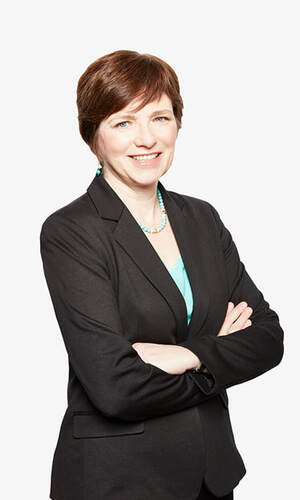 I first met the next leading lawyer in this series, Margaret Waddell, at an Advocates' Society Women in Litigation conference. She was the mentor assigned to my table of women litigators. Marg had a lot of valuable and no-nonsense advice to give. It was much appreciated by everyone at the table. Read on to learn Marg's story and some of that advice: 1. Tell me a little about your practice or business. In June 2017, I opened Waddell Phillips PC with my two partners, John K. Phillips and Julia Tremain. WP is a litigation boutique, which has now grown to a total of 8 lawyers, two contract lawyers, an articling student, Lakehead placement students, summer student and 8 support staff. My practice focusses on plaintiff side class actions, but I still also act on commercial litigation and executive employment matters, and some defence work on class actions. The class actions that we have underway or under investigation cover a broad gamut, including institutional abuse, consumer protection, product liability, medical devices, privacy breaches, and securities misrepresentations. We are always keeping our eye open for the next case that captures our interest, and that meets our firm objective of providing access to justice for victims of injustice or corporate malfeasance. 2. Why did you go to law school? I knew that I wanted to be a lawyer from a very young age. I was inspired by the character of Beth Davenport on the TV show Rockford files. Beth was a strong, independent woman, who spent a lot of time getting her client out of trouble with the law. However, criminal law was never of interest to me. My desire to become a lawyer was more based upon the fact that it would lead to a career that would allow me to be self-determinative, while at the same time I could provide advice and guidance to others who had brushed up against the legal system and needed help. Helping those in need has always been a strong motivating factor for me. 3. How did you get to where you are today? Design? Chance? Both? If you had asked me 30+ years ago what I would be doing now, I’m pretty sure that running my own eponymous firm would not have been anywhere near the top of the list. When I left law school, I certainly knew that I wanted to be a litigator, but more than that, I had no idea. I was pretty naïve – a small town girl with no lawyers in the family or our circle of friends, and no concept of how a business actually runs. I was also very young (I started law school after only 2 years of undergrad). However, along the way I had the great fortune to have some amazing mentors, who taught me the ropes; but also gave me a lot of leeway to learn through my own successes and failures while running files on my own, with only a light touch of supervision. I feel very fortunate to have matured as a lawyer when this was the norm, knowing that it has become increasingly rare for junior lawyers to be entrusted with clients’ cases from the beginning to the end. I also had an abundance of role models – who represented both what I would like to become and what I would never want to be. I believe that you need exposure to the good, the bad and the ugly in order to really come to terms with who you are in this profession, and what you can aspire to achieve. I learned from all these people, and eventually figured out what I really wanted to do, and that meant being my own boss, rather than trying to conform to someone else’s ideal of what the practice of law should look like. As for the practice area, that was entirely by chance. When I was called to the bar in 1989, the Class Proceedings Act had not yet been enacted. That came three years later. Contingency fees had been forbidden in Ontario up until that time, and when the CPA came into force, the thought of taking on such massive cases, and carrying the extraordinary risk that is associated with them seemed potentially foolhardy and definitely a gamble. That was not me. In the early years of practice I was no risk-taker. However, over time, I cautiously waded into the class action world, and the more exposure I had, the more I embraced it. The CPA is such an influential tool for enforcing the rights of the disenfranchised – it gives power to the powerless. It is a serious behaviour modification tool, and ensures that institutional and corporate actors can be held accountable for their misconduct. I like that, and it gives me a sense of purpose to know that I am helping people who might otherwise go without a remedy when they have been harmed. 4. What is your most significant achievement? What are you proud of? I don’t think that I have a single most significant achievement. Sure, there have been some great wins along the way, and also some spectacular losses. That comes with more than 30 years in the trenches. But the thing that I am most proud of is to be the only female head of a class action firm in Canada, to my knowledge. I am enormously proud of my firm and the wonderful group of professionals that have joined with me to make it a success. In three years, WP has grown to triple its original size. We have a wide range of class actions underway, and more in the investigation stage. In fact, I have achieved exactly what my original business plan had envisioned, all seemingly without any extraordinary effort on my part to make it happen. I am also immensely grateful to all the lawyers who had the faith in me to refer clients, or who sought me out to co-counsel on actions, and even more so to those that have taken the chance to work with me, when there are obviously safer and potentially more lucrative alternatives available to them. 5. What are some key challenges, and more importantly, opportunities for women in law? The opportunities for women in law are vastly expanded from 3 decades ago. Women entering law are no longer the exception, or seen as a “woman in a man’s world”. I don’t believe that newer calls need to go to the same lengths that those that preceded them had to go to achieve equality. The world is starting to acknowledge that the diversity of views and life experiences that women bring to the profession, although different from their male peers, are equally valid and important. There are more women in leadership roles, and the networks of mentors and sponsors are ubiquitous. These were non-existent when I started in the practice. I think that as the barriers are broken down, and new attitudes take over the profession, particularly about the ways that we practice law, the opportunities are endless. Innovation and technology have made a huge difference and will continue to do so. Women are equally placed to ride that wave, and to design their own futures in a way that suits their circumstances, skills and aspirations. Sure, the big firms will endure, and for many that is the grail that they seek. It will be there for them; but the opportunities for women now are really only circumscribed by their own imagination and desire. 6. What advice would you give a woman starting her legal career? I don’t have a pat answer to this question. It really depends on the woman, and what she wants to get out of her legal career. The obvious advice is to always be prepared – know your stuff – because to succeed in this profession, as in any other, you have to work hard and be prepared for the unexpected. But that’s a trite response. There are a lot of very hard working, highly capable women with successful careers, and they are not happy. I think that unhappiness comes from compromising your own values and desires. So, I would say, don’t do that. Don’t settle in a job that is sucking away your joy just for the security of a pay cheque. Take risks. And be true to your inner self. If you do the things that make you happy and give you fulfilment, you will be a success. --------------------------------------------------------------------------------------------------------- Thanks for these wise words, Marg, and thank you for participating in this series. I started this blog series because I was tired of hearing about women leaving law and wanted to hear about women leading in law. The "Women Leading in Law" series focuses on good news stories and highlights amazing women succeeding in the legal profession. Each post includes the profiled lawyer's answers to six questions. Prepare to be inspired! ICYMI - previous posts profiled the following amazing lawyers: Nandi Deterville, Jennifer Quaid, Maryann Besharat, Cynthia Mason, Roots Gadhia, Evelyn Ackah, Carrisa Tanzola, Sarah Leamon, Robin Parker, Lorin MacDonald, Karen Yamamoto, Victoria Crewe-Nelson, Lynne Vicars, Kemi Oduwole, Anne-Marie McElroy, Jennifer Gold, Jordana Goldlist, Megan Keenberg, Yadesha Satheaswaran, France Mahon, Sarah Molyneaux, Richa Sandill, Vivene Salmon, Kim Whaley, Alisia Grenville, Frances Wood, Maggie Wente, Anita Szigeti, Neha Chugh, Christy Allen & Nancy Houle, Suzie Seo, Kim Gale, Alexi Wood, Melissa McBain, Erin Best, Gillian Hnatiw, Melanie Sharman Rowand, Meg Chinelo Egbunonu, Lisa Jean Helps, Nathalie Godbout Q.C., Laurie Livingstone, Renatta Austin, Janis Criger, May Cheng, Nicole Chrolavicius, Charlene Theodore, Dyanoosh Youssefi, Shannon Salter, Bindu Cudjoe, Elliot Spears, Jessica Prince, Anu K. Sandhu, Claire Hatcher, Esi Codjoe, Kate Dewhirst, Jennifer Taylor, Rebecca Durcan, Atrisha Lewis, Vandana Sood, Kathryn Manning, Kim Hawkins, Kyla Lee, and Eva Chan. |
Erin C. Cowling is a former freelance lawyer, entrepreneur, business and career consultant, speaker, writer and CEO and Founder of Flex Legal Network Inc., a network of freelance lawyers.
Categories
All
Archives
December 2022
|
|
(C) 2014-2024 Cowling Legal. All rights reserved.
|
Please note I am not currently practicing law.
Information on this website does not constitute legal advice and is for informational purposes only. Accessing or using this website does not create a solicitor-client relationship. See website Terms of Use/Privacy Policy. info@cowlinglegal.com
3080 Yonge Street, Suite 6060 Toronto,ON M4N 3N1 (appointment only) |
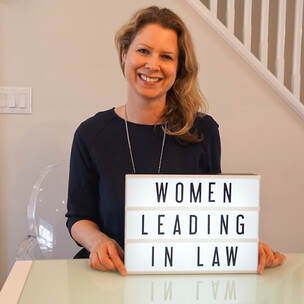
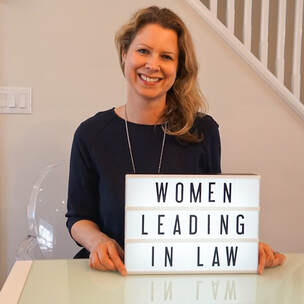
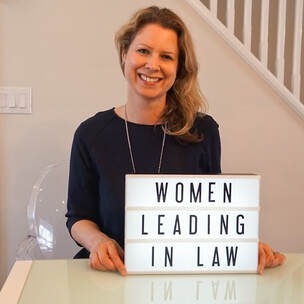
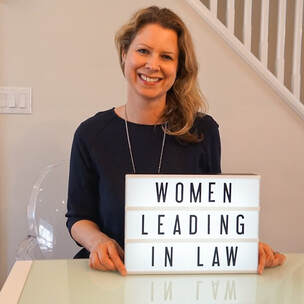
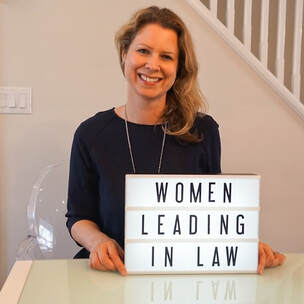
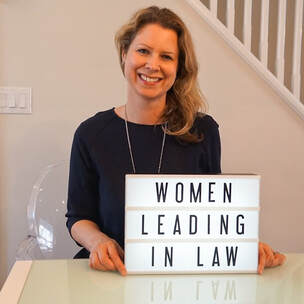
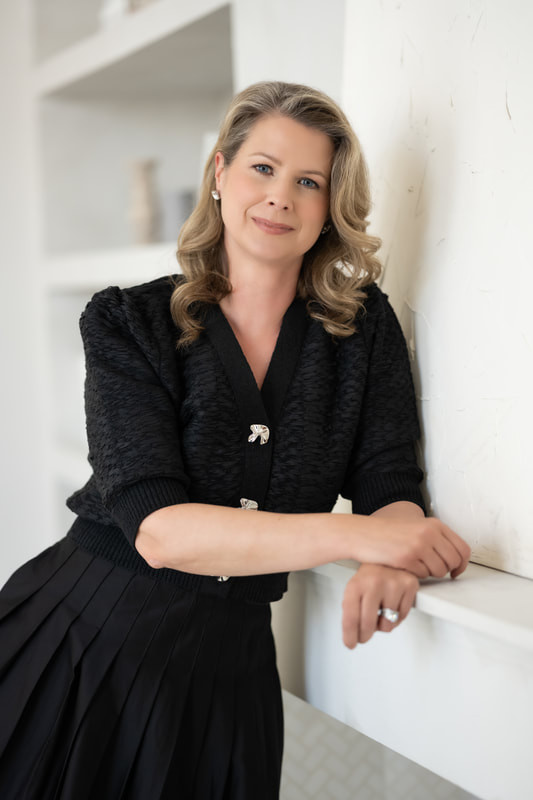





 RSS Feed
RSS Feed
